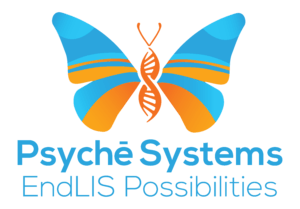Laboratories perform highly specialized work requiring specific software to help manage their workflow. Laboratory information systems (LIS) are software products used in real-world labs to maintain the critical data collected during testing. Having the right software can distinguish between a lab that completes its work on time and one that does not. With that in mind, specialty labs should prioritize obtaining flexible laboratory information systems to improve patient care.
The Growing Complexity of Small and Specialty Labs
Regulatory concerns, among other factors, have increasingly pushed specialty labs to find better LIS products. Older systems may be outdated, lacking the range of features necessary to compete with other labs. As such, labs may have no choice but to look at a broader range of offerings before ultimately selecting the product that will suit their needs. A few factors that may influence the need to upgrade laboratory information systems:
- Increasing emphasis on precision medicine.
- Higher volumes of orders.
- More complex workflows.
What Makes Laboratory Information Systems Flexible?
Features that make an LIS product flexible include:
- Customized Workflows: To the patient, all labs may appear to provide an identical function, but lab owners understand that every lab has its own mission. Customized workflows are the best way to align an LIS with a lab’s unique priorities. When a lab can set up workflows exactly as needed, it can get much more done than if restrained to a pre-defined set of tasks.
- Ability to Configure Reporting and Billing – A flexible LIS should have no trouble producing reports concerning the lab’s output, providing custom-tailored and valuable insights.
- Scalability – With growth comes new priorities. Flexible LIS systems should be easy to scale up to meet changing needs as the lab grows.
A laboratory information system with all of these characteristics will be flexible and worth exploring to see if it can meet your lab’s unique needs.
Use Cases: Flexibility Needs in Specific Lab Types
Let’s look at some specific ways different types of labs can benefit from increased flexibility.
Molecular Labs
In some scenarios, it is necessary to implement rapid expansion of innovations within a lab. Public pressure on labs and their capabilities can arise suddenly, especially in public health emergencies, when labs might feel pressure to implement rapidly. This very scenario played out during the recent COVID-19 pandemic, when many molecular labs rushed to add virus-specific and NGS-based tests to their arsenal. Labs also needed custom results reports, and they needed them immediately. Luckily, powerful LIS products made that possible.
Genetic Labs
Genetic labs often manage variable data formats in the results that they generate. As such, they have significant NGS workflows that they expect laboratory information systems to help them get through. Flexible results templates and approvals are always necessary in genetic labs, and quality LIS products provide them.
Anatomic Pathology (GI & Dermatology)
Customized tracking of the various specimens processed through these types of labs makes anatomic pathology labs the ideal candidate to leverage the power of the LIS. These types of labs will require different reporting workflows depending on whether they’re working dermatopathology cases or GI studies. As such, anatomic pathology labs are constantly leaning on various types of testing to achieve desired results, which is why flexibility within their LIS becomes especially important.
Operational Advantages of Flexible Laboratory Information Systems
By now, the upsides of finding a flexible laboratory information system should already be apparent, but let’s look at more specific benefits that can apply to any type of lab. These include:
- Improved Efficiency: By selecting a trusted and flexible laboratory information system, you can confidently hand off and thus eliminate manual workarounds that cost precious time and effort.
- Increased Data Integrity: By taking human error out of the equation, labs can reduce instances of transcription and reporting errors.
- Better Compliance: These systems make meeting regulatory compliance standards, such as the CLIA, CAP, and others, easier.
- Greater Scalability: Improved scalability means that an LIS can handle higher test volumes and still generate detailed reports even as the complexity of testing grows.
Any type of laboratory should consider these universal advantages of implementing a flexible laboratory information system.
Key Considerations When Selecting a Laboratory Information System
It is always best to ask questions about a particular LIS product before committing. We recommend the following considerations:
- Can this LIS be tailored to my workflow?
- Does this LIS work with my current instrumentation? Will it work with the instruments I may need to use in the future?
- Can this LIS adapt to the new reporting methods and testing types I will likely use in the future?
- Is the product manufacturer’s technical support informed about the needs of specialty labs?
If the answers to these questions are anything other than a resounding “yes!”, consider other LIS products.
Ultimately, the needs of laboratories will continue to grow, and the systems they use must have the complexity to meet those needs. If your current systems lack flexibility, there’s no time like the present to make a switch.
At Pysche Systems, we understand the unique needs of specialty labs, especially those in molecular diagnostics, genetics, gastroenterology, and dermatology. If you’re considering upgrading your laboratory information system, we’re here to help. Contact us to discuss your specific needs and how our solutions can benefit your lab.

